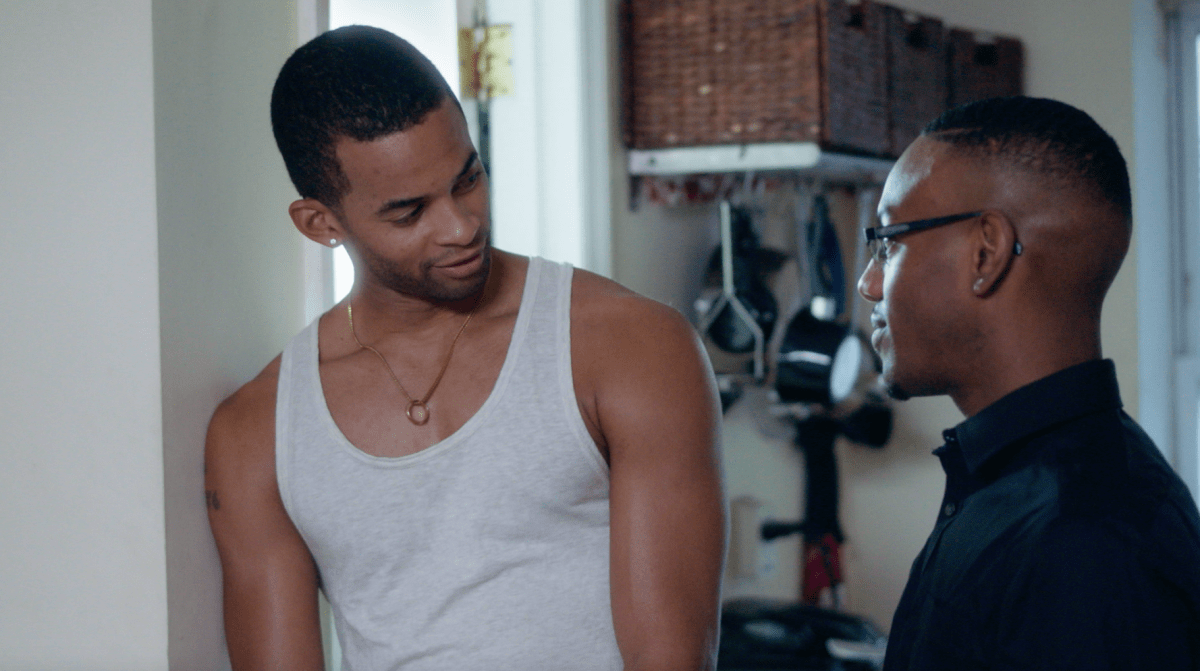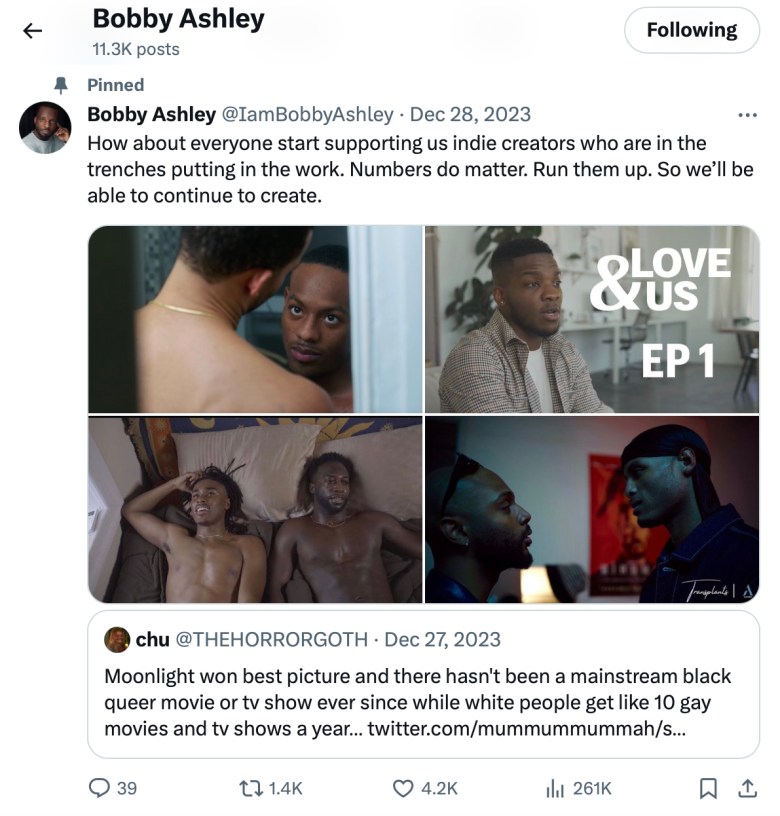Black queer people have expressed the need for mainstream Black queer representation for decades. New York director and writer Bobby Ashley had a thing or two to say about this topic that went viral.
Black queer series like “For The Boys,” “Love & Us,” and “Transplants” are available, but are they supported by mainstream media?
Indeed, Black queer indie creators are not given the same opportunities as their white counterparts. According to filmmaker Stephen Winter, “Well, queer film back then, for the most part, meant white film.”
The 1996 movie “Chocolate Babies,” which Winter wrote and directed, won the SXSW Film Best Picture Award. The film was applauded at international festivals but needed to receive essential funding and distribution to blossom.
For decades, Black queer filmmakers have fought to produce and present their stories in cinema.
Movies and series like “Noah’s Arc,” “The Skinny,” “The DL Chronicles,” and “The Watermelon” Woman give Black queer audiences some representation. But we deserve much more.
The fresh face behind the scenes
The Black Wall Street Times interviewed Brownsville, Brooklyn, New York’s very own, Bobby Ashley. We spoke about his journey as a Black queer indie filmmaker and his latest release, “Single Man Problems Vol. 1.”
Ashley started in the film industry at the age of 16. He independently wrote and directed his first short film “Thicker than Water.” He went forward to attending Brooklyn College, majoring in film production. This led him to his first web series, “The Ave,” which garnered over 5 million streams on Amazon Prime Video in its first quarter.
His life as a producer involved creating something necessary from little to nothing. Ashley shared, “We shot in my neighborhood, we shot in my mom’s house, and used all of our resources in the summertime of New York City.”
He names Issa Rae, John Singleton, Spike Lee, and Tyler Perry as his inspirations.
Related Stories
In 2017, Ashley’s work became more queer-centered with “Single Man Problems.” A web series that evolved into a sizzling serialized movie on Tubi.
The dramedy film focuses on the lives of Ronnie (Keefe Grimes), his best friend Emmanuel (Michel Vidal), and Emmanuel’s girlfriend, Melinda, (Shaniqua West) who live together in New York City.
As a satirical drama, Ashley wanted to particularly focus on the ongoing connection between joy and pain throughout life. Black queer life.
In addition, he believes pacing character development is important because it leaves room for the characters to grow, “We all aren’t monoliths, so see us in this light, see us from the self-conscious man trying to figure his ‘ish out while at the same time making ridiculous choices,” Ashley said.
“Single Man Problems,” the web series, premiered at the 2018 New York Latino Film Festival hosted by HBO. Well-received, the film had a clip that went viral on TikTok.
Overcoming challenges as a Black queer filmmaker

Like Winter’s journey, Ashley believes the lack of funding and discovery for Black queer indie creators builds a challenge.
“We need funding and opportunity, because I’ve garnered so much so far, and yet still, I have to fight for the opportunities,” he explained, “This is why I always encourage people to go watch our work [outside of social media].” He wants funders to intentionally research Black queer film work because the talents are out there working and waiting.
Ashley encourages other Black queer filmmakers to not be so hard on themselves because the odds are already up against them and to leave the door open for future generations. He said, “If you made it this far, you can make it even further.”
Check out Black, Gay, and Stuck at Home an initiative that presents monthly showings of LGBTQIA2+ films created by queer filmmakers, and visit Transgender Media Portal to support Melanated gender-nonconforming and transgender filmmakers.



